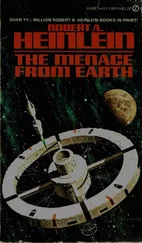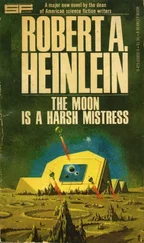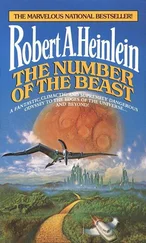Robert Heinlein - Grumbles From the Grave
Здесь есть возможность читать онлайн «Robert Heinlein - Grumbles From the Grave» весь текст электронной книги совершенно бесплатно (целиком полную версию без сокращений). В некоторых случаях можно слушать аудио, скачать через торрент в формате fb2 и присутствует краткое содержание. Жанр: Фантастика и фэнтези, на английском языке. Описание произведения, (предисловие) а так же отзывы посетителей доступны на портале библиотеки ЛибКат.
- Название:Grumbles From the Grave
- Автор:
- Жанр:
- Год:неизвестен
- ISBN:нет данных
- Рейтинг книги:5 / 5. Голосов: 1
-
Избранное:Добавить в избранное
- Отзывы:
-
Ваша оценка:
- 100
- 1
- 2
- 3
- 4
- 5
Grumbles From the Grave: краткое содержание, описание и аннотация
Предлагаем к чтению аннотацию, описание, краткое содержание или предисловие (зависит от того, что написал сам автор книги «Grumbles From the Grave»). Если вы не нашли необходимую информацию о книге — напишите в комментариях, мы постараемся отыскать её.
Grumbles From the Grave — читать онлайн бесплатно полную книгу (весь текст) целиком
Ниже представлен текст книги, разбитый по страницам. Система сохранения места последней прочитанной страницы, позволяет с удобством читать онлайн бесплатно книгу «Grumbles From the Grave», без необходимости каждый раз заново искать на чём Вы остановились. Поставьте закладку, и сможете в любой момент перейти на страницу, на которой закончили чтение.
Интервал:
Закладка:
March 1, 1953: Robert A. Heinlein to Lurton Blassingame
...We are all well again-even the cat, as I finally got the big black tomcat that had been beating him up. Ginny woke me one morning and said that the black torn was out front. I hurried into robe and slippers, loaded my Remington .380 pistol, and went out. Got him with the first shot, fortunately, as he was moving and I wouldn't have gotten a second. Had him buried and was back in bed in under twenty minutes. A sad task, but Pixie was so crippled up that I don't think he could have survived another beating-and I prefer my own cat to a feral one.
October 8, 1953: Robert A. Heinlein to Lurton Blassingame
I tried to keep the letter factual in tone; if undue emotion has crept into it, you may charge it off (this is private to you) to the fact, among others, that -- without consulting us, gave us as financial references all around Colorado Springs-and that Ginny was annoyed by telephone calls demanding to know when -- was going to settle her bills. And other matters better left unsaid.
December 11, 1964: Robert A. Heinlein to Lurton Blassingame
We have a new phone number-UNLISTED-so please write it down here and there. Ginny has wanted this for years to put a stop to fan calls at all hours. I must admit the quiet is welcome.
January 9, 1968: Robert A. Heinlein to Lurton Blassingame
I am returning Art Clarke's article as you asked in your note on the face of it. I take it that Spectorsky's [a Playboy editor] request was made to you this time rather than direct to me. He makes this request of me almost every month; I have long since quit answering these little notes. The first one was several years ago and concerned a short story by Fred Brown-quite a good one and I wrote a nice plug for it, which Spec published.
It was a mistake; I should have ignored it. I've been bombarded with similar requests ever since. Quite aside from the time such free work would require, correspondence is the bane of my existence and the major interference with my working time; I've no wish to add to it by writing letters to editors. And it is indeed "free work" that Spec wants; he is soliciting unpaid reviews from well-known writers.
But, hell, I might go along with it if that were all there is to it-Playboy is a number one market and it wouldn't hurt me to grease Spec a bit. But here is the trouble: I will not under any circumstances write anything unfavorable about any of my colleagues-and some of the stuff Spec asks me to comment on stinks. This one by Art Clarke is a dilly. But the last request concerned a story by -- . I'm on good terms with -- and intend to stay that way-but, had I written in as -- asked me to, the letter would'have read: "Dear Spec, You should be ashamed to have printed it and -- should be ashamed of having written it."
So what should I do, Lurton? Pick out only the ones I can honestly praise and ignore the others? Or do as I have been doing and never comment on the work of my colleagues?
CHAPTER XIV
•*
STRANGER
June 20, 1952: Robert A. Heinlein to Lurton Blassingame
I am writing every day but, frankly, the copy stinks. This novel may involve several rewrites, followed by a decent burial.
EDITOR 's NOTE: In early 1949, Robert was searching for a theme for the short story "Gulf, " which he had promised to John Campbell. During the course of the discussions, I suggested to him that it be a story about a human being raised from infancy to maturity by a race of aliens. This notion arrested him, but he thought it an idea which required more room than a short story afforded. However, he went into his study and wrote for some hours-fourteen single-spaced pages, mostly questions to be answered. That was the beginning of Stranger in a Strange Land.
July 16, 1952: Robert A. Heinlein to Lurton Blassingame
Yes, I am still having trouble with that novel. Trouble is all that I am having-with the story itself and trouble with my surroundings. I have lost almost a month to houseguests, Arthur C. Clarke followed by the [George O.] Smiths-and now we are about to spend a week in Yellowstone and Sun Valley, leaving tomorrow. I could cancel this trip, but there are reasons why it is desirable not to cancel it. Furthermore I hope that a few days away from a constantly ringing phone will help me to straighten out this novel in my mind. (Sometimes I think that everyone in the country passes through Colorado Springs in the summer!) When I get back, I expect to have to go to the hospital for another operation. All in all, entirely too many days this year have been eaten by the locusts. My intentions have been good. I have not been idle-far from it! But I haven't accomplished much.
The story itself is giving me real trouble. I believe that I have dreamed up a really new S-F idea, a hard thing to do these days-but I am having trouble coping with it. The gimmick is "The Man from Mars" in a very literal sense. The first expedition to Mars never comes back. The second expedition, twenty years later, finds that all hands of the first expedition died-except one infant, born on Mars and brought up by Martians. They bring this young man back with them.
This creature is half-human, half-Martian, i.e., his heredity is human, his total environment up to the age of Iwcnty is Martian. He is literally not human, for anthropology has made it quite clear that a man is much more ihc product of his culture than he is of his genes-or certainly as much. And this Joe wasn't even raised by unthropoid apes; he was raised by Martians. Among other things, he has never heard of sex, has never seen a woman-Martians don't have sex. He has never felt full earth-normal gravity. Absolutely verything about Earth is strange to him-not just its getfruphy and buildings, but its orientations, motives, Measures, evaluations. On the other hand, he himself has cccivcd the education of a wise and subtle and very adiinced-but completely nonhuman-race.
That's the kickoff. From there anything can happen. I have tried several approaches and several developments, none of which I am satisfied with. The point of view affects such a story greatly, of course -- universal, first person, third person central character, third person secondary character, first person secondary character narrator-all have their advantages and all have decided drawbacks. A strongly controlling factor is the characteristics and culture of the Martian race-I started out using the Martians in Red Planet. I'm not sure that is best, as they tend to make the story static and philosophic. This story runs too much to philosophy at best; if I make the Martians all elder souls it is likely to lie right down and go to sleep. Affecting the story almost as much is the sort of culture Earth has developed by the time the story opens. After all that comes the matter of how to manipulate the selected elements for maximum drama. And I'm not pleased with any plotting I've done so far. I Ve messed up quite a lot of paper, have one long start I'll probably throw away and a stack of notes so high.
If this thing doesn't jell before long I had better abandon it, much as that goes against my personal work rules. I do have about three cops-and-robbers jobs which I can do, one a parallel-worlds yarn and the other two conventional space opera. I don't want to do them; I want to do a big story. But perhaps I should emulate Clarence Bud-dington Kelland and give the customers what they are used to and will buy, rather than try to surprise them.
July 18, 1952: Lurton Blassingame to Robert A. Heinlein
The book idea sounds tremendous, but I can well understand why you would find yourself in difficulties. Put it aside, work on something else, return, and find a new perspective.
June 10, 1953: Robert A. Heinlein to Lurton Blassingame
...Unfortunately, I cannot report that I have cracked the novel...
Читать дальшеИнтервал:
Закладка:
Похожие книги на «Grumbles From the Grave»
Представляем Вашему вниманию похожие книги на «Grumbles From the Grave» списком для выбора. Мы отобрали схожую по названию и смыслу литературу в надежде предоставить читателям больше вариантов отыскать новые, интересные, ещё непрочитанные произведения.
Обсуждение, отзывы о книге «Grumbles From the Grave» и просто собственные мнения читателей. Оставьте ваши комментарии, напишите, что Вы думаете о произведении, его смысле или главных героях. Укажите что конкретно понравилось, а что нет, и почему Вы так считаете.










